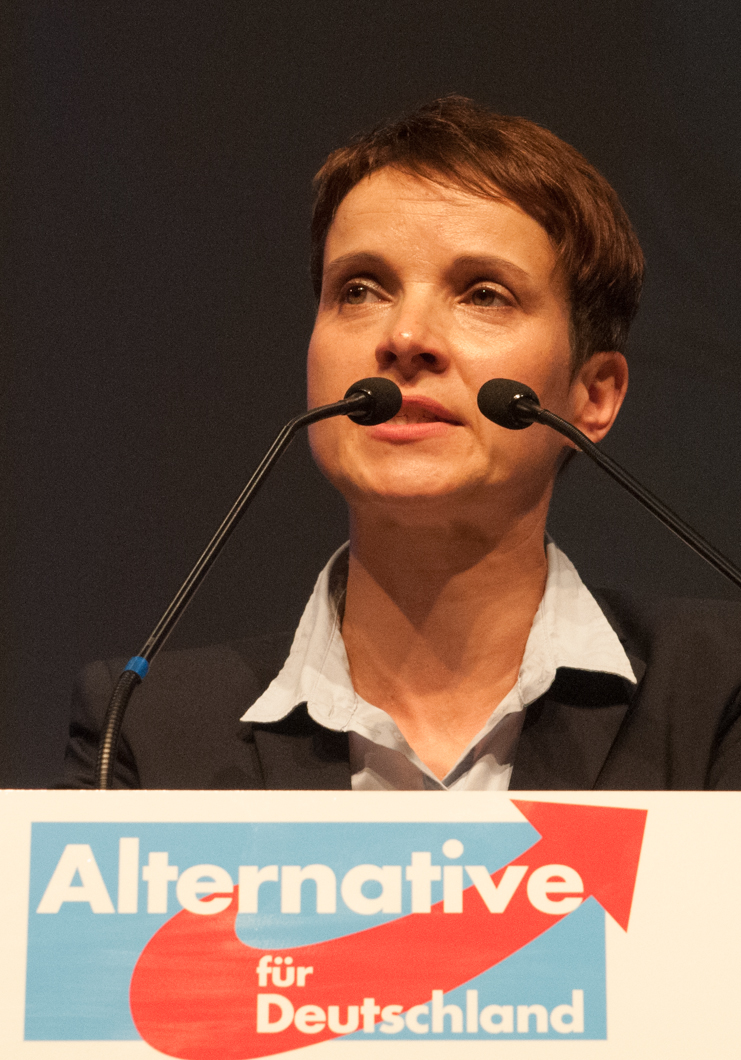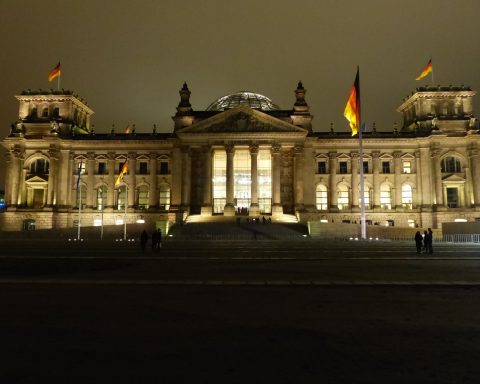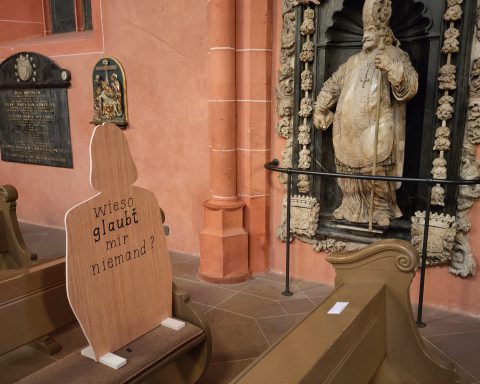Even with the global rise of the extreme right, it’s safe to say no one would expect its leaders to visit a Holocaust memorial with any intention other than to cause trouble. That seems to have been the thinking as staff blocked Björn Höcke, Thuringia chair of the far-right wing AfD party, from a Holocaust Memorial Day event at Buchenwald.
Such a decision at first seems reasonable, even sensible; but there are implications.
It was certainly right to block him entry to the Holocaust memorial at the former concentration camp; but that doesn’t mean his spiteful opinions should be silenced entirely, as to do so would have its own dangers.

Would Höcke have been rejected entry to the memorial if he had not made his recent speech in which he called for an end to what in his eyes is a culture of lingering on Nazi crimes?
He described the standing Berlin Holocaust memorial as a “memorial of shame” and demanded a “180 degree turn in political memory”. These are hardly the words of a politician wishing to attend a Holocaust memorial to pay respects.
Either he is a hypocrite who likes to make controversial statements for fun and not for action, or Höcke intended to carry out some form of twisted protest at the very site of historical horror and regret.
Höcke’s party leader, Frauke Petry, even denounced the speech.
Petry told a newspaper that “Björn Höcke has become a burden for the party, with his go-it-alone attitude and constant sniping”. This highlights how much he and his views stand outside of an already far-right party.

Petry’s condemnation could, however, be taken to be in light of the recent attempted ban of the extreme-right NPD. The AfD cannot risk being seen as too far-right, as that would run the risk of being considered Verfassungswidrig, or “unconstitutional”.
As right-populist as the AfD is, they are not the NPD. It appears as if Höcke would fit nicely into the more extreme, and in disarray, party.
The decision not to ban the NPD was followed by disbelief at the time, as the reason given was that the party was too insignificant to damage Germany’s democracy. The AfD, in contrast is not insignificant, and therefore would not have the same defence against an attempted ban.
As unfortunate as Höcke’s views are, he should be allowed to express them. We know from the past that banning extreme opinions in their entirety causes greater problems by driving supporters of such views underground. That eventually leads to groups like the NSU and the RAF terrorist organisations of the not-so-far past.
Höcke’s ban from attending the memorial therefore comes down to location.
Although historical memorials do have a political background and do have political consequences, they are not the location for aggressively stirring up emotionally fuelled political questions.

It is impossible not to be shaken emotionally by a visit to a former concentration camp. Many visiting the Buchenwald memorial will have been affected more personally than others.
Whether Germany does, as Höcke believes, linger too much on past horrors or not, a place symbolic of millions of innocent lives lost is not and never will be the place to express that opinion.
We are left in the difficult situation of having to grant Höcke his unpleasant beliefs, but that certainly does not make him welcome where his beliefs would bite hardest.
Feature photo: Björn Höcke at open house in Thüringer Landtag, 13 Juni 2015. By © Vincent Eisfeld / vincent-eisfeld.de, CC BY-SA 4.0, Wikimedia Commons.









